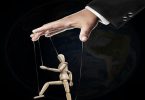4. Unusual humor.
Narcissistic abuse victims have a unique sense of humor that can be pretty dark or self-deprecating. They often use jokes to lighten the mood or deflect tension, which can be their way of coping with uncomfortable feelings. It’s like a shield they put up to protect themselves. Dr. Maria Reynolds explains humor can be a powerful tool for those who have experienced pain; it allows them to regain some control over their emotions. So, when they crack a joke that seems heavy or pokes fun at themselves, it’s not just ordinary humor. Their way of processing experiences might still feel too raw or painful. Understanding this can help you see their laughter as a sign of resilience rather than just a punchline.
5. Compulsive caretaking.
Narcissistic abuse victims often try to fix other people’s problems almost like it’s a reflex. This compulsive caretaking can come from their past, where they felt the need to manage situations to feel safe or valued. As Dr. Jennifer Fred explains, those who have been abused often become hyper-focused on others’ needs as a way to avoid their pain. They might think that by helping others, they can find some control or approval that they didn’t get when they needed it. So, if you see them jumping in to solve someone else’s issues, it’s not just about being helpful; it’s also a way for them to cope with their own experiences and emotions. Understanding this can help you appreciate their intentions while reminding them that taking care of themselves is okay.
Recommended Book: Becoming the Narcissist’s Nightmare: How to Devalue and Discard the Narcissist While Supplying Yourself- By Shahida Arabi.
6. Inconsistency in social media.
When you’re friends with someone who has experienced narcissistic abuse, you might notice they’re super active on social media one day and then completely disappear the next. This inconsistency often comes from their emotional ups and downs. They may share a lot when feeling good but pull back when overwhelmed or anxious. As psychologist Dr. Ramani Durvasula points out, those who have experienced emotional trauma often struggle with boundaries, leading to erratic behaviors online. So, if they fluctuate between posting frequently and going silent, remember it reflects their emotional journey, not their feelings about you.
Continue Reading on the Next Page
Sharing Is Caring!





